El Camino College professor Dane Teter performed with several guest artists for an evening of instrumental chamber music on Saturday, April 21 in the Campus Theatre.
Part of the college’s Resident Artist Series, “Dane Teter and Friends in Concert” presented a variety of 18th- and 19th-century works, playing five works in total.
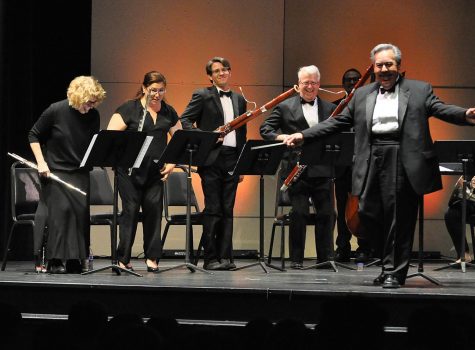
“It was better than I thought it would be,” music major Dane Johnson said. “The music was really good and diverse throughout the performance.”
The five compositions played (in order) were “Water Music, Suite No. 1 in F, HWV 348” by George Frideric Handel, “Symphony No. 7, Op. 92” by Ludwig van Beethoven, “Petite Symphonie” by Charles Gounod, “Overture to Die Fledermaus” by Johann Strauss Jr., and “Nimbus 2000” by John Williams.
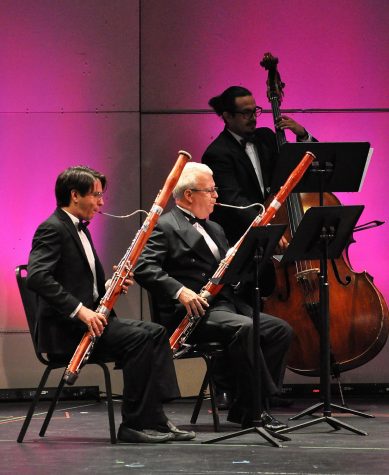
The first piece performed, excerpts from “Water Music, Suite No. 1 in F, HWV 348” by George Frideric Handel, was upbeat and spirited, performing with two bassoons, two french horns, and two oboes and a string bass.
The concert program, written by Teter, claims that the three suites of “Water Music” (which is often published as three suites) contained “numerous highly spirited dances popular at the Baroque courts of France and the British Isles.”
“It made me want to get up and dance,” undecided major Lindsay Niles said. “That music set the mood for the rest of the night.”
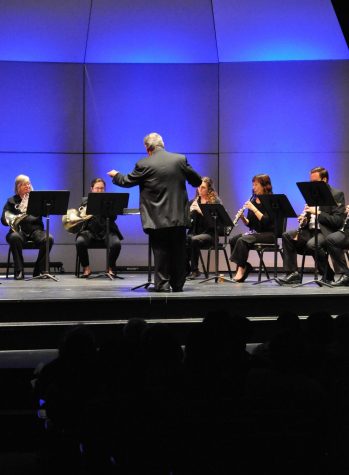
The second piece performed, “Symphony No. 7, Op. 92” by Ludwig van Beethoven, was the longest piece of the concert, spanning for longer than 30 minutes.
After a brief intermission, the third piece performed, “Petite Symphonie” by Charles Gounod, modeled itself after “Symphony No. 7” by Beethoven with a mellow sound, with this piece including only a single flute.
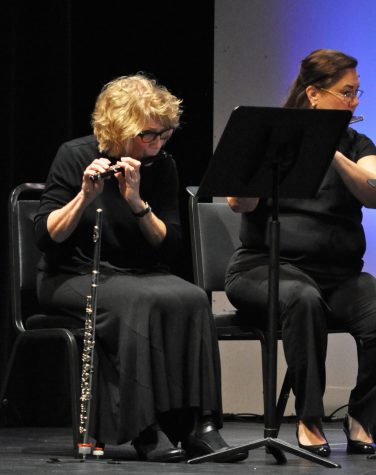
Teter characterizes the arrangement as “an elegant discussion among the instruments.”
“The songs performed with the flute gave a more smooth sound to it,” Johnson said. “It gave the music an identity.”
The fourth composition played, “Overture to Die Fledermaus” by Johann Strauss Jr., is proclaimed by Teter “undoubtedly one of the most popular operettas ever written” and described as “rich in the sparkling melodies of waltzes and polkas, exudes a Viennese charm and panache.”
“Overture to Die Fledermaus” was the first composition played with the full 11-instrument ensemble.
The fifth and final score of the concert, “Nimbus 2000” by John Williams, is a score written for the movie Harry Potter and the Philosopher’s Stone, but the adaption that was performed was written by local composer Anthony O’Toole.
“Definitely my favorite song of the night,” undecided major Trayvon Mitchell said. “It reminded me of when I would play in the park when I was younger, so much energy.”
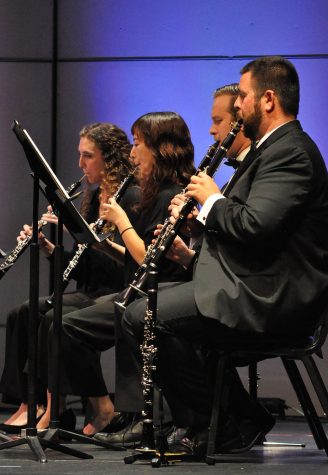
The adaption of “Nimbus 2000” that was played included the full 11-instrument ensemble as well.
“I never thought I’d enjoy this concert as much as I did,” Johnson said. “It’s funny how little things can change your mind about something so quickly.”






